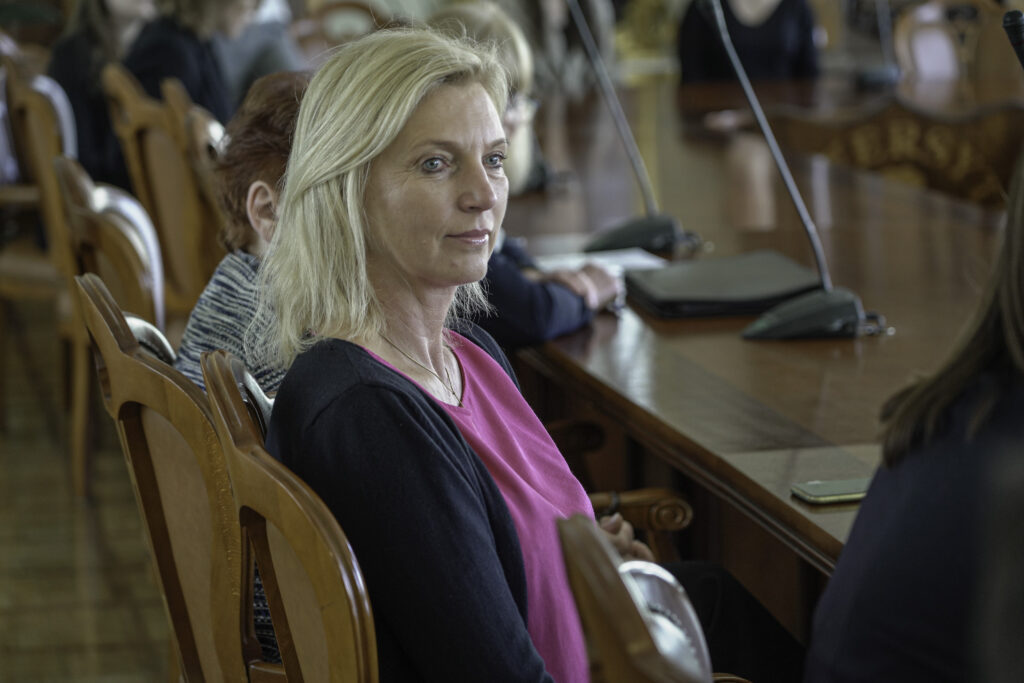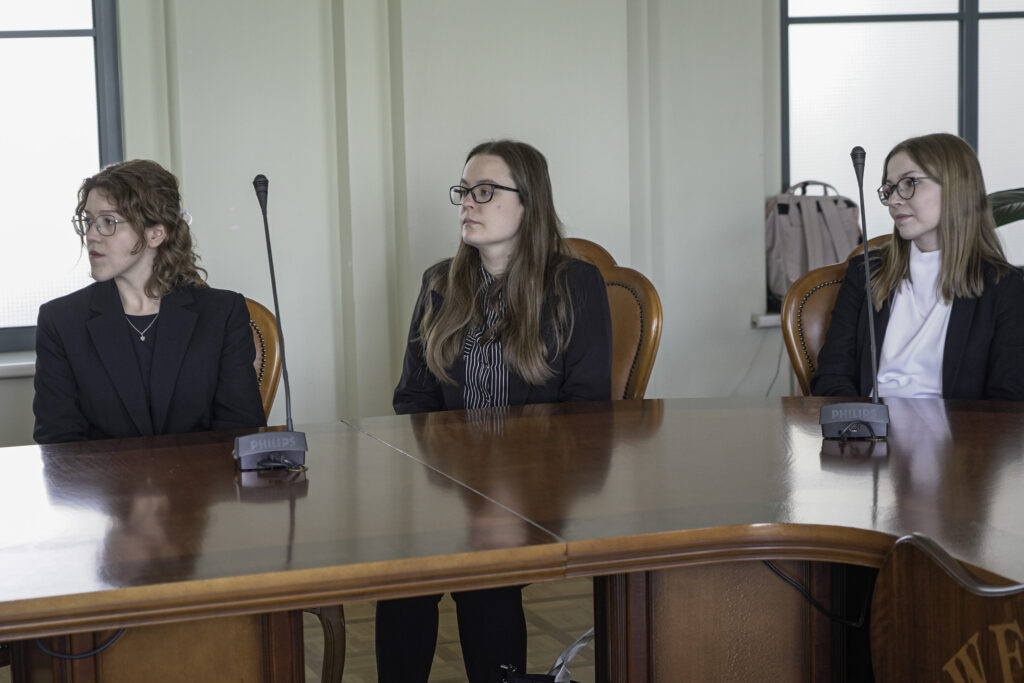Prof. Gertruda Uścińska, Rector of the Nicolaus Copernicus Superior School, took part in a scientific seminar organized at the University of Opole by the Regional Social Research Section of the Committee on Labor and Social Policy at the Polish Academy of Sciences (KNoPiPS PAN). The main themes of the debate were the growing pragmatism of academic youth and social crime as a silent threat to the welfare state.
The seminar was opened by Dr. Rafal Matwiejczuk, Vice-Rector for Development and Finance at the University of Opole, SGMK Rector Prof. Gertruda Uścińska, Chairwoman of KNoPiPS PAN, and Dr. Bartosz Chorkowy, Dean of the Faculty of Economics at the University of Opole.
The event brought together experts from the University of Economics in Katowice, Wrocław University of Economics and Business, University of Opole, University of Warsaw, SGH Warsaw School of Economics, Cracow University of Economics and the University of Lodz to discuss the results of research devoted to these two important social challenges.
SGMK Rector Prof. Gertruda Uścińska stressed that in the current difficult times, the readiness of the scientific community to jointly debate social challenges is particularly valuable. “It is important to underline it publicly and to express gratitude to the universities that host us,” she added.

The first part of the meeting presented the results of a study conducted by the team of Dr. Dominika Malchar-Michalska, professor at the University of Opole, on the motivation of young people to pursue higher education. The analysis, which includes data collected since 2016 among students of different types of universities, indicates a clear shift toward pragmatic and instrumental attitudes. “Young people are increasingly choosing their studies with job market security and a specific profession in mind. They care about a diploma from a recognized university and stable employment. Cognitive motivations – such as broadening horizons or developing interests – become secondary,” Prof. Malchar-Michalska noted.
The researcher also pointed to a number of factors that may have influenced the changing attitudes of the younger generation: the COVID-19 pandemic, popularity of hybrid learning, growing economic pressures and dynamic changes in the labor market. These trends have important implications for the operation of universities.
Dr. Bartosz Chorkowy stressed that adapting to changing student expectations must not mean lowering educational standards. “It is crucial to maintain a balance between practical and academic education. It is also important to increase the flexibility of teaching modes to meet the needs of students, who often already at the undergraduate level combine study with professional work,” he argued. At the same time, he pointed out that the level of students’ skills does not always correspond with the expectations of the labor market, as clearly shown in the research. “To remedy this, universities need to implement modern teaching methods, use innovative software and adapt the format of classes to current realities in order to more effectively prepare students for professional challenges,” he added






The second part of the seminar was devoted to the issue of social crime, understood as abuse of social security systems. Dr. Wojciech Goleński of the University of Opole presented the assumptions of a research project aimed at organizing knowledge about this phenomenon – its forms, scale and socio-economic consequences. “This phenomenon exists at the interface of law, social policy and institutional practice. In OECD member countries, it is estimated that social crime affects up to 10% of social security systems. In Poland, the exact scale of this problem is still unknown. Our research is intended to help approximate it. While a precise estimate of the full scale is not possible, we can determine the consequences of this phenomenon – especially for public finances and the level of social trust,” he explained.
Prof. Gertruda Uścińska, referring to the presented assumptions of the project, recalled the social security reforms that significantly reduced the scale of fraud in Poland. “In the 1990s, there were nearly three million people receiving disability benefits in Poland. After the legal changes introduced in 2007, the number dropped to about half a million. This shows the importance of proper regulation, supervision and efficient organization,” she said. In her view, social crime is not only a problem of budget spending, but also a serious threat to the social legitimacy of social security policy. “If citizens perceive that the system is leaky and prone to abuse, this can lead to a loss of trust in state institutions.” – SGMK Rector stressed.
In summing up the seminar, the speakers unanimously stressed the need for further cooperation between the scientific community and institutions responsible for shaping and implementing public policies.
Source and photos: Uniwersytet Opolski.




